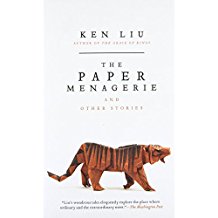AMAZON SYNOPSIS:
”A mesmerizing debut set in Syria on the cusp of the unrest, A Word for Love is the spare and exquisitely told story of a young American woman transformed by language, risk, war, and a startling new understanding of love.
It is said there are ninety-nine Arabic words for love. Bea, an American exchange student, has learned them all: in search of deep feeling, she travels to a Middle Eastern country known to hold the “The Astonishing Text,” an ancient, original manuscript of a famous Arabic love story that is said to move its best readers to tears. But once in this foreign country, Bea finds that instead of intensely reading Arabic she is entwined in her host family’s complicated lives—as they lock the doors, and whisper anxiously about impending revolution. And suddenly, instead of the ancient love story she sought, it is her daily witness of a contemporary Romeo and Juliet-like romance—between a housemaid and policeman of different cultural and political backgrounds—that astonishes her, changes her, and makes her weep. But as the country drifts toward explosive unrest, Bea wonders how many secrets she can keep, and how long she can fight for a romance that does not belong to her. Ultimately, in a striking twist, Bea’s own story begins to mirror that of “The Astonishing Text” that drew her there in the first place—not in the role of one of the lovers, as she might once have imagined, but as the character who lives to tell the story long after the lovers have gone.
With melodic meditation on culture, language, and familial devotion. Robbins delivers a powerful novel that questions what it means to love from afar, to be an outsider within a love story, and to take someone else’s passion and cradle it until it becomes your own. “

Initially I was intrigued to read a novel set in a modern Middle Eastern country with the conflict lurking as an ugly shadow in the background.
I was equally intrigued to have a first-hand account of life, as a foreign American student, living with a Muslim family. The background details of social attitudes and daily domestic life , from an almost solely female point of view, were unusual; obviously new to me, a non-Muslim living in a Westernised African country.
But this said, the tortoise pace of the story, the claustrophobic domestic atmosphere , (he home is virtually a prison for the females in the story) the minutiae of trivial domestic detail, began to bore me. The cautious progress of the love blossoming between Nisrine the maid in the household and the policeman, Adel, visible on a nearby roof was initially scary – downright alarming, given the political activism of Baba, the head of the household, but it all gradually trickled away due to the slow pace of the narrative. No doubt my loss, but in the end I decided I didn’t care whether the lovers did or did not meet; or whether the American student Bea ever succeeded in prising the famed love poem text out of the university library.
I suppose maybe Bea’s witness of the Adel/Nisrine romance, accompanied by Adel’s shower of poetry might be taken as a substitute for the famed un-available classical text, but again … I simply lost interest.
The information about the formation of Arabic words, and the elegance of Arabic script was interesting . My Google search informed me that Emily Robbins did indeed spend time with an Arab family, as a foreign exchange student. The novel has a bright ring of authenticity about it, no question.
I would like to hear from readers who have read and enjoyed the novel. For me it was a “DNF” read .







